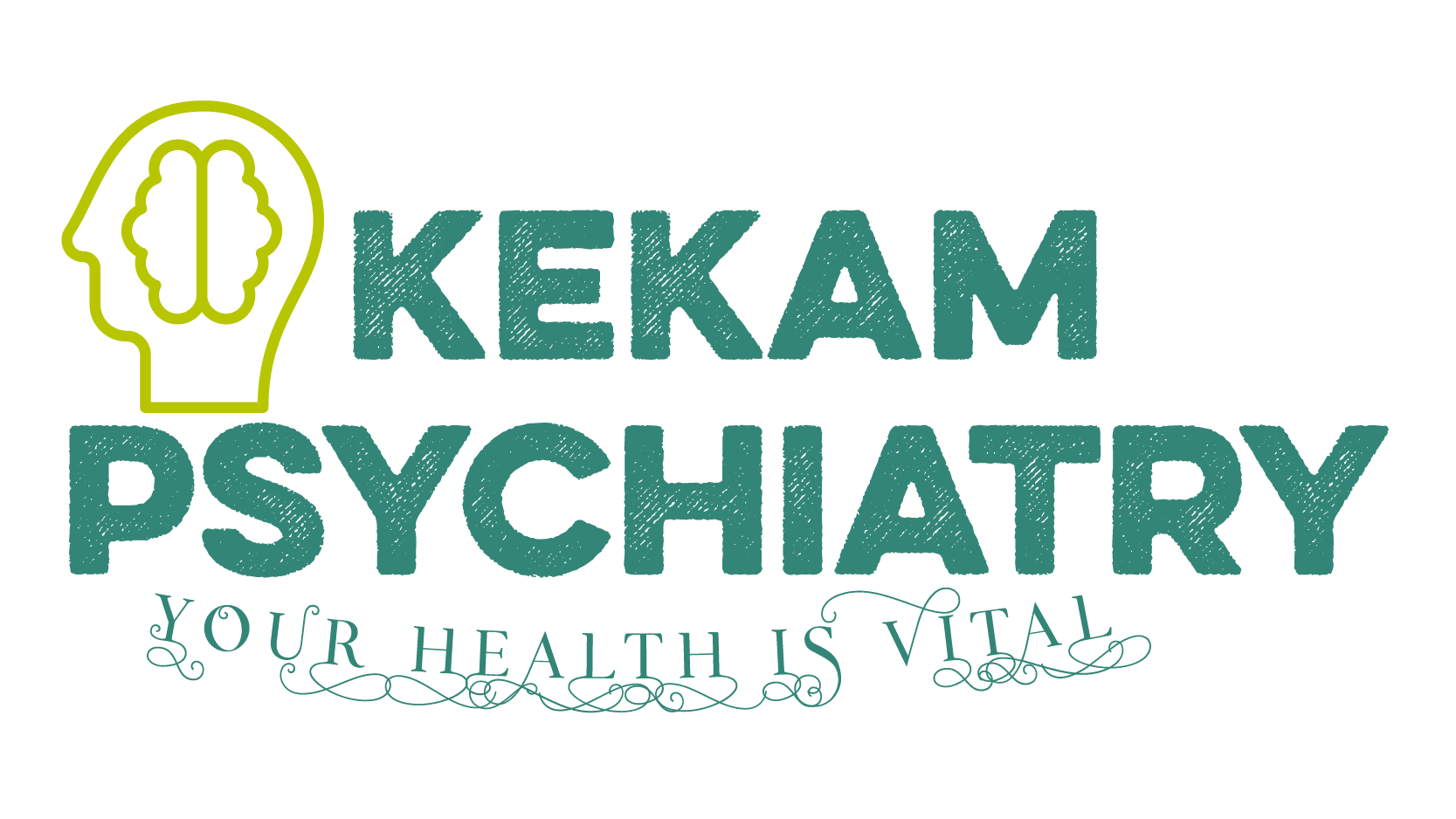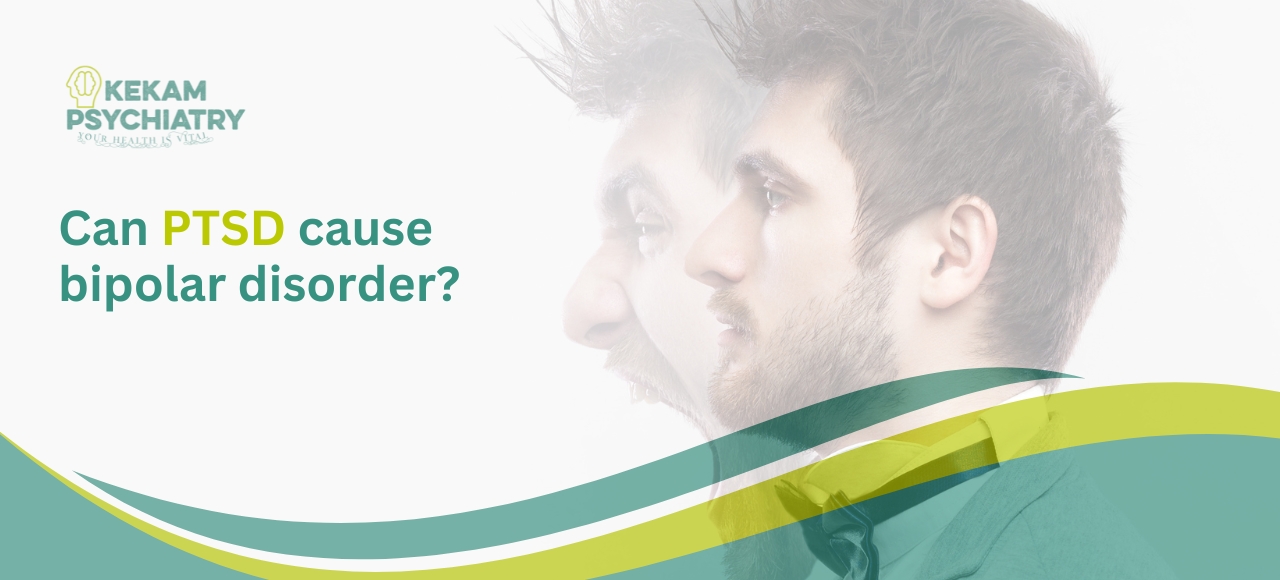Post-traumatic stress disorder (PTSD) and bipolar disorder (BD) often walk hand in hand, but can PTSD actually cause bipolar disorder? This question strikes at the intersection of trauma, genetics, and mood regulation.
While PTSD is a reaction to trauma, bipolar disorder involves recurring mood episodes and has a strong genetic component. Still, emerging research reveals that trauma, especially complex and chronic trauma, may increase the risk or complicate the course of bipolar illness.
Understanding PTSD and Bipolar Disorder
PTSD develops after a traumatic event such as assault, accidents, combat, or prolonged abuse that overwhelms a person’s ability to cope. Symptoms include intrusive memories, nightmares, hyperarousal, avoidance, and emotional numbness.
Bipolar disorder, on the other hand, is characterized by alternating mood states of mania or hypomania and depression. Genetics accounts for approximately 73 to 93 percent of the risk, while environmental and psychosocial factors also play a role.
Do PTSD and Bipolar Disorder Coexist
Yes, quite frequently. Estimates suggest that 16 to 40 percent of individuals with bipolar disorder also meet criteria for PTSD. Some studies even report rates up to 50 percent in specialized clinical samples.
Can PTSD Cause Bipolar Disorder
Shared Vulnerabilities and Genetic Overlap
There is evidence of partial genetic overlap between PTSD and bipolar disorder. Polygenic risk scores for bipolar disorder and schizophrenia show a small but statistically significant association with PTSD risk, especially in women. This suggests that PTSD and BD may share some underlying genetic vulnerabilities rather than one directly causing the other.
Trauma as a Trigger for Bipolar Onset or Worsening
Traumatic exposure, especially during childhood or adolescence, may not directly cause bipolar disorder, but it can certainly influence its onset, severity, and progression. Studies show that individuals with BD who have PTSD or complex PTSD (cPTSD) tend to develop the disorder earlier, cycle more rapidly, and face more unstable mood patterns. Childhood trauma is also associated with emotional dysregulation, impulsivity, and cognitive disruptions, which are features that overlap with bipolar symptoms and may intensify the disorder.
Symptom Overlap and Risk of Misdiagnosis
PTSD and bipolar disorder share symptoms like irritability, sleep disturbances, mood swings, anhedonia, suicidal thoughts, and concentration problems. This overlap increases the risk of misdiagnosis or delayed diagnosis of either condition.
Furthermore, PTSD related intrusions, nightmares, and avoidance can trigger hypomanic or manic episodes during periods of stress or dysregulated mood.
How Comorbidity Affects the Illness Course
Adults with both bipolar disorder and PTSD generally fare worse than those with either disorder alone. Common outcomes include:
- Higher rates of hospitalization and suicide attempts
- Increased mood instability and rapid cycling
- Lower quality of life and impaired social functioning
Treatment can also be more challenging. Patients with both PTSD and BD often respond less effectively to standard mood stabilizers like lithium and quetiapine than those with bipolar disorder alone.
Interestingly, trauma-focused therapies like Prolonged Exposure may reduce PTSD symptoms in people with bipolar disorder, but more rigorous research is needed to confirm long-term benefits.
Biological and Neurobiological Connections
Trauma and stress can trigger epigenetic changes that affect gene expression, the hypothalamic pituitary adrenal (HPA) axis, immune regulation, and brain plasticity, which are mechanisms implicated in both PTSD and bipolar disorder. For example, reduced brain-derived neurotrophic factor (BDNF) function, which is linked to both conditions, may serve as a neurobiological bridge between trauma and the onset of bipolar disorder.
So, Can PTSD Cause Bipolar Disorder
Not directly, but trauma plays a significant role in increasing risk.
- PTSD may precipitate or unmask bipolar symptoms in genetically predisposed individuals
- Complex PTSD contributes to earlier onset, rapid cycling, and more severe illness.
- Shared biology and trauma-induced changes further connect these conditions
In other words, PTSD is not a direct cause of bipolar disorder, but it is a major environmental risk factor and can significantly influence the trajectory and severity of the illness.
Clinical Implications and Treatment Considerations
For clinicians and patients managing both PTSD and bipolar disorder, awareness and integrated care are crucial:
- A comprehensive assessment of trauma history is essential in bipolar evaluations
- Treatment should balance mood stabilization with careful PTSD intervention
- Trauma-informed therapies may be helpful, but caution is needed with antidepressants due to the risk of triggering mania
- Psychosocial support and emotional regulation strategies, such as dialectical behavior therapy (DBT) or trauma-focused cognitive behavioral therapy (CBT), can be effective.e
Conclusion:
While PTSD does not directly cause bipolar disorder, trauma, especially when it is repeated or deeply complex, can strongly influence how the illness begins, how severe it becomes, and how difficult it is to treat. Because the two conditions often occur together and share similar symptoms, people living with both can face even greater challenges.

